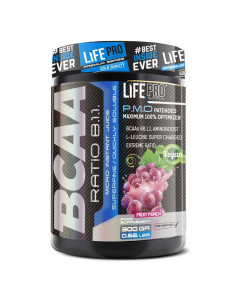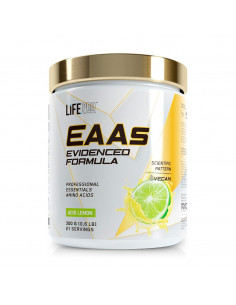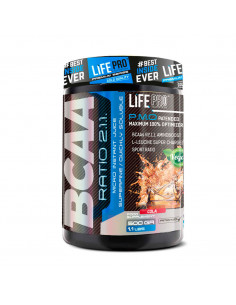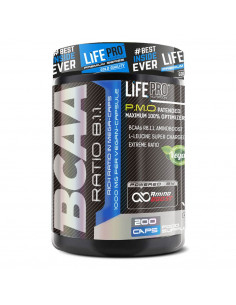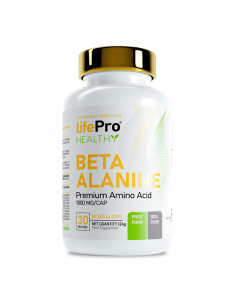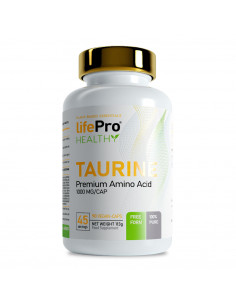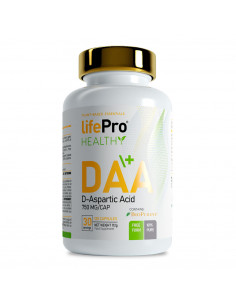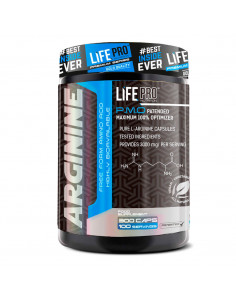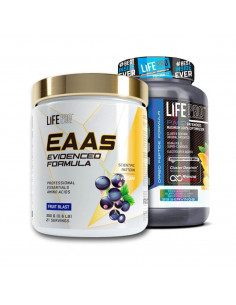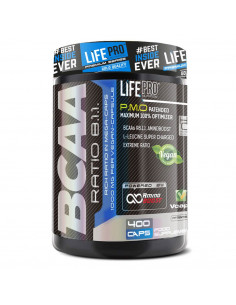Buy Amino Acids ONLINE only best brands
Here you will find a long list of amino acid supplements for sale , at the best price on the market. Look no further, buy comfortably from home through our website.
Our body is made up of approximately 20% proteins, elements that play a fundamental role in almost all biological processes in the body. The basis of these proteins are the amino acids , which form part of cells, muscles and tissues and are responsible for carrying out numerous important functions within our body.
Amino acids are therefore organic compounds that combine with each other to form proteins. They are composed of carbon, oxygen, hydrogen and nitrogen and, depending on their structure, can be differentiated into L- and D-forms. L-forms are the natural structures for organisms and are therefore the most important.
Main functions of amino acids
Amino acids generally have many essential functions for our bodies. So much so that each of the different amino acids can have an independent function.
On the one hand, they are responsible for helping to break down food . But they also help the individual to grow, are involved in the repair of body tissues and are an important source of energy.
In this sense, amino acids are mainly responsible for enabling muscle contraction or maintaining the balance of acids and bases in the body. They are also responsible for the optimal transport of nutrients and the optimisation of nutrient storage.
The truth is that amino acids are the basis of all life processes , which makes them absolutely necessary in any metabolic process. Without the right amount of essential amino acids in our body we will be more exposed to suffer metabolic disorders such as obesity, cholesterol, diabetes, insomnia, erectile dysfunction or arthritis.
Types of amino acids
There are about 250 amino acids in total, of which 20 are called proteinogenic amino acids . It is precisely the latter that are considered most important for the proper functioning of the organism.
Proteinogenic amino acids are divided into:
- Essential amino acids : those that are not produced by the body by itself and must be obtained through food
- Non-essential amino acids : those that the body does produce
- Conditional amino acids : needed to alleviate certain diseases or disorders such as stress
Everyone requires a combination of essential and non-essential amino acids in their regular diet. The amount of these will depend on each type of person and on a series of conditioning factors, such as age, physical and mental wear and tear, sex, etc.
There are precisely 8 essential amino acids that the body needs and that must be acquired from outside: isoleucine, leucine, lysine, methionine, phenylalanine, threonine, tryptophan and valine.
The separation between essential and non-essential amino acids does not mean that some are more important than others. They have only been separated in this way in order to know which ones the body is able to manufacture on its own and which ones it cannot.
Foods rich in amino acids
Since amino acids are the basis of proteins, any food rich in proteins will have an important contribution of amino acids. Therefore, we are mainly talking about foods such as milk, eggs, meat and fish. Legumes, nuts and soya derivatives also fall into this category.
Foods rich in amino acids can be divided into:
Of animal origin: milk and dairy products (yoghurt, cheese, butter, etc.), eggs, fish (especially salmon, tuna and sardines) and meat (especially chicken, rabbit and beef)
Plant-based: cereals, pulses, vegetables, seeds and nuts.
Amino acid supplements
amino acid supplements are a great help in minimising muscle loss when minimising calorie intake.
But they can also help to increase the intensity of daily training. During any physical exercise, serotonin levels are increased, which leads to increased fatigue. The role of amino acid supplements in this case will be to reduce the amount of tryptophan entering the brain, which will lead to a decrease in the amount of serotonin produced, resulting in less fatigue during exercise.
As can be seen, amino acids are essential for the body. Their daily consumption is essential, both essential and non-essential amino acids.
What do amino acids do?
Amino acids are a group of organic compounds that form the building blocks of the proteins that make up 75% of the body. They are involved in almost every function of the body, including growth and development, healing and repair, normal digestion, and supplying energy to the body.
Is it safe to take amino acids every day?
The short answer is yes; amino acid supplements are safe . However, like all supplements, there is a potential danger if these compounds are abused.
When should I take amino acids?
The ideal time to take branched chain amino acids is during workouts by adding 5-10 grams to your shake regimen, both pre- and post-workout, to fuel your body and repair your muscles .
Do amino acids affect the kidneys?
Amino acids regulate haemodynamics and proteolysis and maintain kidney integrity . Abnormal amino acid profiles in plasma and muscle in chronic renal failure (i.e. low content of essential substances and tyrosine with high content of non-essential substances) primarily indicated malnutrition, which can be partially corrected by supplementation.
Can amino acids be taken without exercise?
Amino acids can even combat exercise-induced fatigue , and they work much faster than the typical protein supplement. But can you take amino acids without exercise? The answer is YES.

